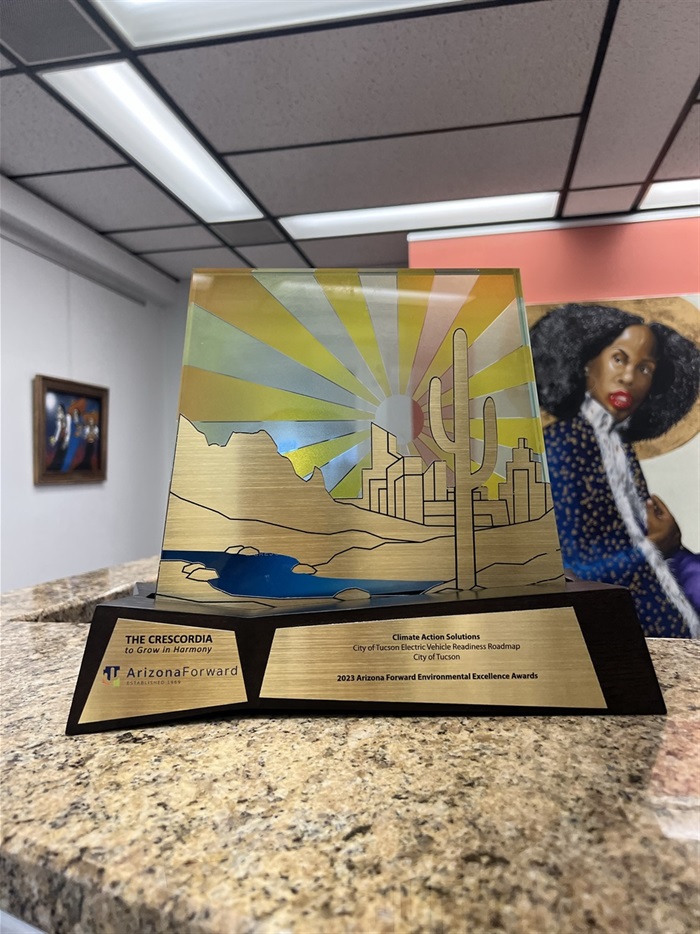Tucson EV Readiness Roadmap receives Crescordia Award
Published on May 11, 2023
The City of Tucson Electric Vehicle Readiness Roadmap was honored by Arizona Forward in the Climate Action Solutions Category of the 2023 Environmental Excellence Awards. The City of Tucson’s Electric Vehicle (EV) Readiness Roadmap is paving the way to help historically underserved communities access affordable, clean transportation powered by locally-sourced clean, renewable energy. Since adopting the EV Roadmap in April 2021, the City established a Green Fleet Policy, invested in EV charging facilities, established new codes that require EV-ready residential and commercial new developments, and launched an electric bus fleet – the first public transportation system in the state to do so.
Environmental Excellence Awards. The City of Tucson’s Electric Vehicle (EV) Readiness Roadmap is paving the way to help historically underserved communities access affordable, clean transportation powered by locally-sourced clean, renewable energy. Since adopting the EV Roadmap in April 2021, the City established a Green Fleet Policy, invested in EV charging facilities, established new codes that require EV-ready residential and commercial new developments, and launched an electric bus fleet – the first public transportation system in the state to do so.
Planning and Development Services spearheaded the adoption of EV-ready requirements for all new residential and commercial development through amendments to the building and zoning codes. The new zoning regulations require all new commercial development, multi-family, office, and retail to include EV stations or outlets, as well as conduit to support future expansion of EV capacity. These regulations went into effect on December 1, 2022. This ordinance was adopted after more than a year of research and technical analysis, stakeholder engagement and public outreach to develop a proposal for commercial EV requirements tailored to the needs of the Tucson community. Participants in the stakeholder outreach included representatives from commercial and multifamily development industry, advocates from environmental, public health, and social justice organizations, EV enthusiasts, and the Tucson Electric Power. In June 2021, Mayor and Council adopted a change to the building code to require that all new one- and two-family homes within the City of Tucson be EV-ready by providing a 40-amp circuit and a receptacle near a parking space.
These requirements make it easier for community members to make the switch to EV by expanding access to charging infrastructure and ensuring that new development is prepared to meet the growing demand for EV charging. They also help reduce the overall cost of transitioning to EVs by avoiding the need for costly future retrofits, as the most cost-effective time to install EV infrastructure is at the time of initial construction.
Two other City of Tucson projects were recognized at the Environmental Excellence Awards:
- Tucson Ward 6 Glass and Plastic Reuse Project, Submitted by City of Tucson - Circular Economy Solutions Category
- Stacking Stormwater Solutions: A Model for Interjurisdictional Partnership, Submitted by City of Tucson - Buildings Structures and Landscape Design, Landscape Design Category